
Do you have what you need to make your garden grow?


Garden Center
Store Hours
Mon-Sat:
6:00am - 10:00pm
Sun:
7:00am - 8:00pm
Curbside:
09:00am - 6:00pm
Location
Popular at Your Garden Center
Trending Garden Supplies in May
Trending Live Plants
Garden Project Calculators
;Resize=(703,395.44))
Grass Seed Calculator
When you're ready to seed your lawn, our calculator helps you estimate the amount of grass seed you'll need to get the job done.
;Resize=(703,395.44))
Mulch Calculator
Enter your preferred material, the square footage and mulch depth of the coverage space for accurate results.
;Resize=(703,395.44))
Fencing Calculator
We'll calculate the amount of fencing you should purchase based on your property needs.
Shop Outdoor and Garden Brands
Frequently Asked Questions About Gardening
How do I know what planting zone I'm in?
Check the USDA zone map, as planting zones have shifted over the years. Planting zones with higher numbers can plant earlier in the year. Choose plants that are meant for your zone and increase your odds of gardening success.
What's direct sow in gardening?
If the soil isn't frozen or cold, consider planting your veggie, flower, or fruit seeds directly into your garden. This is called the "direct sow" method. The time to plant will be after the threat of frost is gone for the season, as seedlings and sprouts can't weather those conditions. You can also start your seeds indoors if you'd like. Consult your seed envelope for when and how to sow seeds.
How do I plant seeds?
Read your seed packet for the best info on how to grow spring flowers, fruits, and vegetables — indoors or outdoors. Requirements vary from one type of plant to the next. Some seeds should only be sown indoors, and your seed packet will tell you that, too. You'll be a pro at planting seeds in no time.
Do I have to harden off my seedlings before planting them outside?
Yes, for best results, if you raised plants indoors from seeds in your own plant nursery, harden them before you transplant them. Hardening allows your seedlings to adjust to outdoor life, spring rains, and temperature swings, making them more resilient against cold snaps. It slows their growth until they're strong and ready to take off during a spring warm front.
What should I check before planting transplants or seeds outside?
Before you plant, make sure that the soil is healthy, it's warm enough outside, and your plant will have the right amount of sun. Check your seed package to see if it likes full sun, shade, or partial sun, as well as what time of year it should be planted. Space your plants as described on the seed envelope for best results so your plant babies have room to grow big and strong.
What are seed tapes?
If you're dealing with extremely tiny seeds or want more guidance in planting, consider seed tapes. They're biodegradable pieces of paper with tiny seeds affixed at regular intervals. Just bury the tape and water as directed. If all goes well, your perfectly spaced sprouts will pop up soon.
Garden Project Ideas
The Home Depot Garden Center at W Nyack
Set Up For Springtime
On beautiful spring days, tidy the yard before everything blooms in earnest. Many people feel inspired to refresh their outdoor space for entertaining as well. Don't forget to sweep out the gazebo and clean the shed in preparation for spring, too. No matter which plants you need and what outdoor projects you choose to tackle, search for your local plant nursery and find that The Garden Center in W Nyack can help you enjoy your spring activities to the fullest.
Plant Hardiness Zones Explained
The first thing to know when planting veggies, spring flowers, and other seeds is your planting zone. Every location in the U.S. and its territories is sorted into blocks by climate. Find your zone on the USDA growing zone map and learn when to plant seeds.
For example, you could transplant bell peppers outdoors in mid-March in Zone 10, but not until the end of May in Zone 4. You'll have good results with plants that have your zone number or less. In other words, a Zone 7 garden can support plants listed as Zones 1–7. The timeframe to direct sow outdoors in your garden is often around a month later than the indoor start date. Always read your seed packet for details. If you start them later than recommended, it's not ideal, but it will likely even out as time passes.
Gardening in Your Growing Zone
In Zone 5, which includes parts of Pennsylvania as well as upstate New York, New Hampshire, Vermont, and southern Maine, your best bets for veggies will be root vegetables like beets and carrots, leafy greens including lettuce, and cruciferous veggies like cabbage and kale. You can try squash, but prepare for additional warming upkeep when late frost is forecast. Target planting dates are roughly mid-March through May 1st, depending on whether you're starting your seeds indoors or directly sowing them into your garden.
Much of Ohio, Pennsylvania, West Virginia, New Jersey, Connecticut, southern New York state, and Massachusetts are in Zone 6, so planting can begin earlier there than farther north. Parts of Virginia are even warmer, coming in at Zone 7. The outdoor growing season doesn't begin until mid-March or even April, although you can plant some veggie seeds halfway through February. Tomatoes, cucumbers, peppers, squash, onions, and other classic garden crops will do well in this region, and most of them can get an early start indoors before spring really moves in.
Plant Seeds Outside With Direct Sow
Planting seeds with the direct sow method, right into the soil, is another option. There's less tending and planning than growing indoors. If you like to go with the flow, follow the instructions on your seed pouch and try it out.
Your seeds might struggle to grow or get washed away, or critters or insects might eat the sprouts. But if you're really lucky, you might get strong sprouts, perfectly spaced and ready to grow all spring. The reality of your sown seeds will usually be somewhere in between, and spreading out tiny sprouts throughout the soil isn't so bad. You know those sprouts are hardy and primed to survive, although there are no guarantees.
Start Seeds Indoors
If you'd like more control over your seedlings' journey or you're eager to get growing, start your seeds indoors in your own plant nursery. In general, you can plant seeds indoors about a month before you can do it outside. Like direct sow, you push the seeds into the soil as directed on the seed packet, but that's where the similarities end.
You're responsible for giving them quality substitutes for sun and rain. Keep your seeds warm with warming mats and grow lights, water them carefully with a spray bottle or watering can, then thin them as they germinate in groups of three. Give them a boost with a gently blowing fan as they lengthen into sprouts if you'd like. Harden them off to get them used to outdoor conditions, then transplant them into your garden when they're big enough.
Transplant Young Plants Into Their New Homes
You've raised your baby plants from seeds, watched them sprout, and carefully hardened them off to brave Mother Nature. By now, your plants have three or four real leaves — they'll look different from the miniature seedling leaves. When the ground is warm, and you're not expecting soaking rain, look into transplanting your big sprouts into their new outdoor home. "Transplant" means that you put these small plants straight into the garden soil or into pots. In cases where you directly planted into the ground, you may still want to shuffle plants around for the best spacing and sun. That's also a transplant situation, as is repotting plants into larger pots.
Protect Your Garden With Mulch
Finish your flower bed with mulch and compost. Compost enriches the soil so your garden can grow even better. It may help foster stronger and larger plants that bear more fruit and flowers. Mulch keeps your soil moist and controls weeds. Compost and mulch can be DIY creations, but you can also purchase them in-store. The next time you're looking for "mulch near me," stop by the Garden Center to get the perfect amount.
Greet the Spring
Don't miss a minute of growing season. Prepare to fertilize your lawn, plan your garden and landscaping, and browse The Home Depot nursery to find inspiration on what to plant when the weather warms. For those without lawns, consider adding a pellet grill or artificial grass to your outdoor space. Shop for the fertilizer, seeds, and soil you need in the aisles of your W Nyack Garden Center, online, or on our mobile app. Let's get growing together.
Nearby Stores
Find Another Store
43 Hutton Ave
Nanuet, NY 10954
3.19 mi
Mon-Sat: 6:00am - 10:00pm
Sun: 7:00am - 8:00pm
1 Saw Mill River Road
Hawthorne, NY 10532
7.32 mi
Mon-Sat: 6:00am - 10:00pm
Sun: 8:00am - 6:00pm
465 State Rt 17
Mahwah, NJ 07430
9.86 mi
Mon-Sat: 6:00am - 10:00pm
Sun: Closed
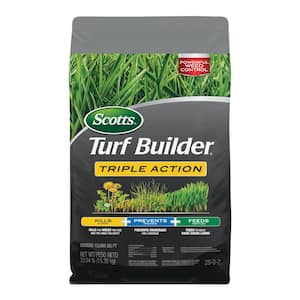
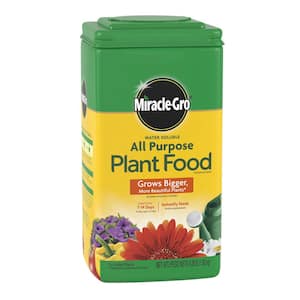
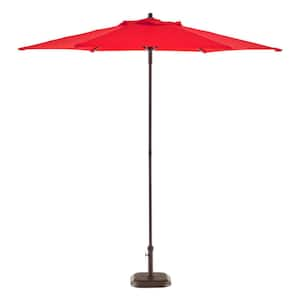
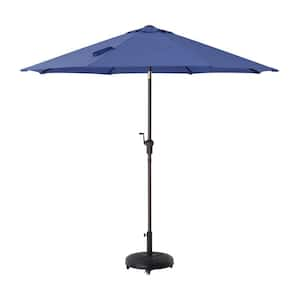
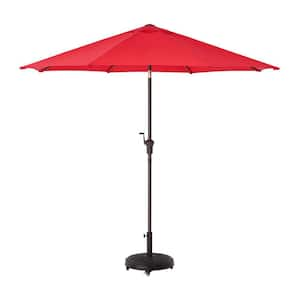
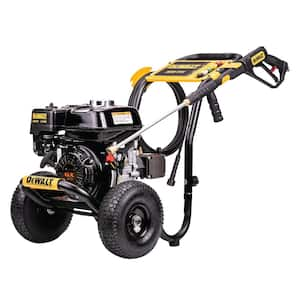
)
)
/17_514245_S_012_Product%20Image%20(square).jpg?im=Resize=(300,300))
;Resize=(300,300))
)
)
)
)
)
/2023_P2_Rain_Barrels_Product%20Image%20(square).jpg?im=Resize=(300,300))
)
;Resize=(300,300))
;Resize=(300,300))
;Resize=(300,300))
/12_SOIL_B_0420_Social%20media%20(square).jpg?im=Resize=(300,300))
;Resize=(300,300))
)
)
;Resize=(300,300))
;Resize=(300,300))
;Resize=(300,300))
;Resize=(300,300))
)
)
;Resize=(300,300))
;Resize=(300,300))
;Resize=(300,300))
;Resize=(300,300))
;Resize=(300,300))
)
/18Patio_Camden_Seagrass_5pcSeating_Planters_302468736_DTL3_L_Social%20media%20(square).jpg?im=Resize=(300,300))
;Resize=(300,300))
;Resize=(300,300))
;Resize=(300,300))
)
;Resize=(300,300))
;Resize=(300,300))
)
;Resize=(300,300))
)
.jpeg?im=Crop,rect=(363.69230769230774,1.2307692307692308,958.7692307692308,958.7692307692308);Resize=(300,300))
;Resize=(300,300))
)
;Resize=(300,300))
;Resize=(300,300))
)
;Resize=(300,300))
)
)
;Resize=(300,300))
;Resize=(300,300))
)
)
;Resize=(300,300))
)
;Resize=(300,300))
;Resize=(300,300))
)
)
;Resize=(300,300))
)
)
/Capello_Spring_Mum_10in_Social%20media%20(square).jpg?im=Resize=(300,300))
;Resize=(300,300))
)
)
;Resize=(300,300))
)
)
;Resize=(300,300))
)
)
;Resize=(300,300))
;Resize=(300,300))











































